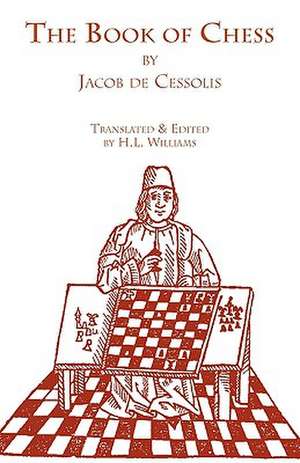The Book of Chess
Autor Jacobus, Jacob De Cessolis Editat de H. L. Williamsen Limba Engleză Paperback – 31 aug 2009
Preț: 126.54 lei
Nou
Puncte Express: 190
Preț estimativ în valută:
24.21€ • 25.28$ • 19.99£
24.21€ • 25.28$ • 19.99£
Carte tipărită la comandă
Livrare economică 15-29 aprilie
Preluare comenzi: 021 569.72.76
Specificații
ISBN-13: 9781599100104
ISBN-10: 159910010X
Pagini: 150
Ilustrații: 1
Dimensiuni: 140 x 216 x 9 mm
Greutate: 0.2 kg
Ediția:New.
Editura: Italica Press, Inc.
ISBN-10: 159910010X
Pagini: 150
Ilustrații: 1
Dimensiuni: 140 x 216 x 9 mm
Greutate: 0.2 kg
Ediția:New.
Editura: Italica Press, Inc.
Descriere
In the 13th century, de Cessolis outlined the virtues and vices, obligations and inclinations of various members of medieval society: those who governed, those who fought and those who worked, playing out their qualities on the chess board. This edition offers the first English translation of this famous work since Caxton's printing of 1474.










